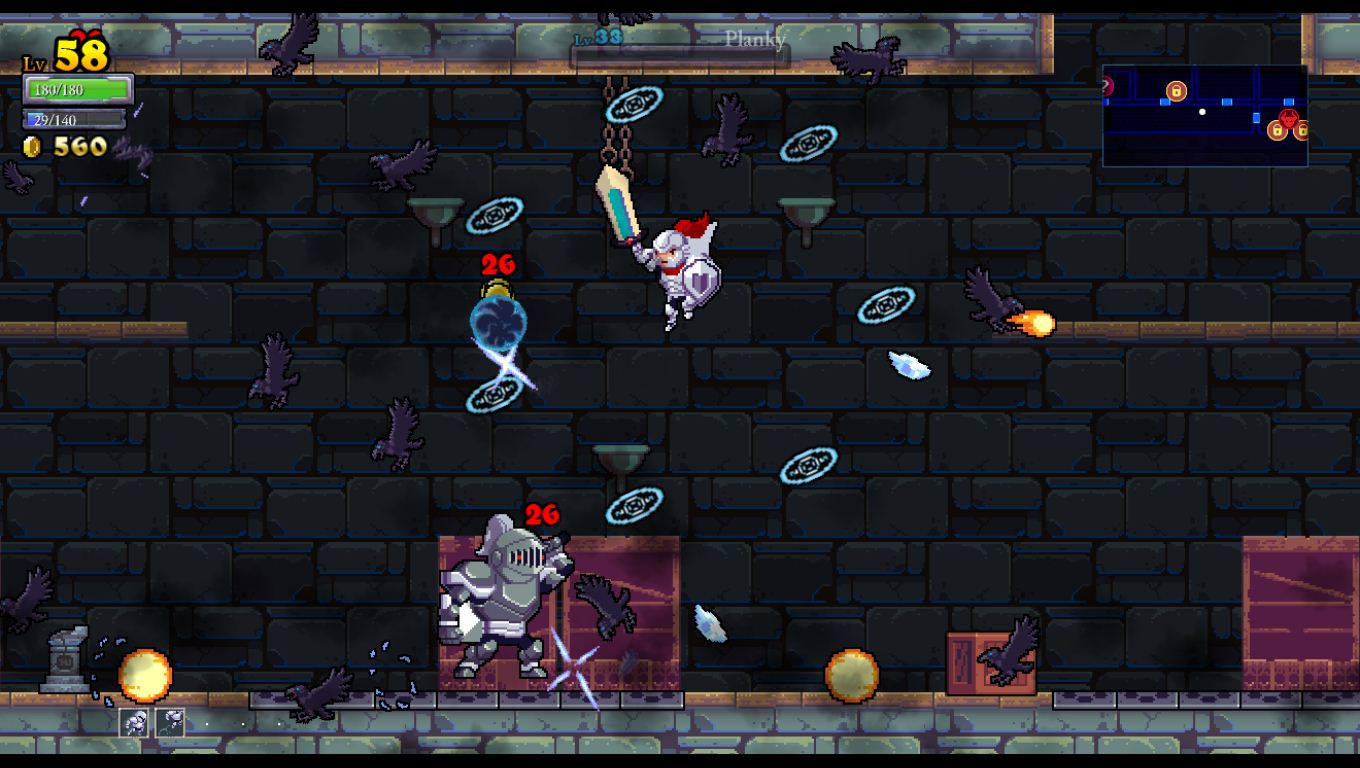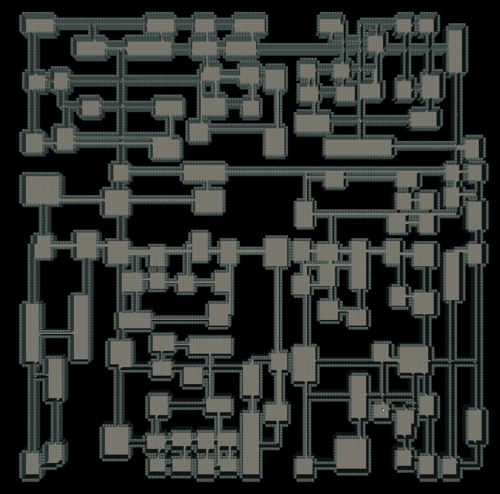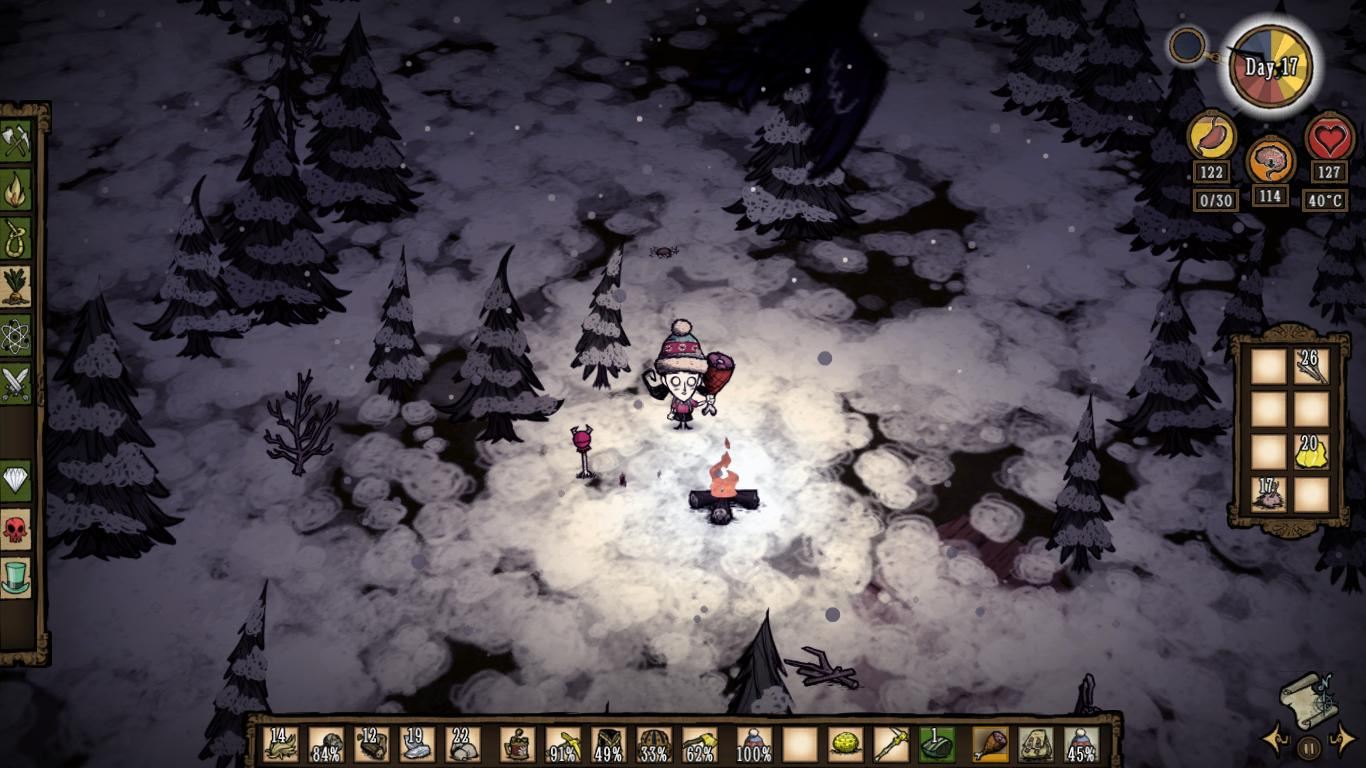
Permadeath sucks! There is no other way to put it. In spite of that, it’s something many willingly face to play their favourite roguelike, myself included. Have we gone crazy, willing to lose everything upon death? Aye, completely bonkers! But seriously, with another 7DRL wrapped up this past weekend, I got to thinking: why create the evilness that is a roguelike, and what drives players towards such chaotic a risk vs. reward system? Welcome to The Indie Post.
Well alright, so my recent trip down memory lane with Moria (which can be read on Gaming Momentum) also has something to do with this sudden curiosity. But you have to admit, there is a certain wickedness to creating a game in which players only get one shot, one opportunity. Heck, I’m willing to bet at least some of those who have released a popular roguelike are grinning at the prospect of their creations killing players… permanently. Evil I say! Evil.
Not that I’m condemning them for it, mind you. Quite the opposite in fact, as I’ve countless genre entries over the past two decades (if not longer). The prospect of permanently dying in a video game is intimidating and at times, downright terrifying. But at the same time, it can also be an incredible adrenaline rush, knowing that should you fall, well, that’s it – no second chances!
Unless of course, you’re playing a game like Rogue Legacy, with its rather unique upgrade system. In a way, this ‘metagame’ lets you carry on past the point burying your dead character, odds tilted slightly more in your favor next time. Provided you accumulated enough wealth for an upgrade of course, because if not, well, then all that last attempt got ya was a big “don’t do whatever killed you again” reminder. Most don’t do anything of the sort though, wrapping everything up at the loss of that final hit point instead. Needless to say, those are by far my favourite type.
Adding to the list of dangers is procedurally generated content, which means players never know what to expect as any map drawn from an earlier attempt will be utterly useless in the next. That amazing armor-piercing rifle? Maybe it’ll reappear in the dungeon/cave/spaceship/etc. generated for your next attempt, maybe it won’t, but it will not be in the same spot at least. Random is random after all, and while this can result in a slight disadvantage now and then, it does increase the replay value.
I’m not even remotely adept at programming, but even I can see that crafting a proper roguelike experience is anything but easy. There are a lot of factors to deal with unless the intent is to task players with scaling Mount Everest in high heels of course (metaphorically speaking). Content generation code, enemy AI, itemization, abilities and lots of other stuff have to be taken into account – no one wants to have the life of their character/party terminated by unbalanced gameplay, after all.
Falling to overwhelming odds because you decided to bite off more than you could chew is one thing, but unfair is unfair, and that’s not what most want from a video game; roguelike or not. What I’m getting at is that, next to MMORPGs, this genre just might be among the most challenging to balance, given the amount of variables. For me, that’s a big part of why I enjoy it so much. The effort required to scale it all, no matter the scope of your creation, is just… crazy.
But if it’s that darn difficult, why did so many developers set out to craft a roguelike, this past week? Well, because they could! That and out of appreciation for the genre, surely. It has been around for a long time after all, with the first release of Rogue – which spawned an entire RPG sub-genre – dating all the way back to 1980! Yup, the original is almost 34 years old, which just might make it the oldest genre in the history of video games. The more things change, the more they stay the same.
What started out as a bunch of surprisingly deep ASCII titles with Rogue, Moria, Nethack and so on, has evolved significantly over the past three decades, and not just in terms of visual fidelity. The H.P. Lovecraft-inspired Eldritch is a great example of this, as it features most of what we’ve come to think of as ‘roguelike elements’: procedurally generated content, little to no hand-holding, permadeath, an emphasis on combat and so on, all wrapped up nicely in a pixellated first-person shooter package. Good stuff.
Or how about Don’t Starve? I know it’s hardly a roguelike by definition, even if it does feature both procedurally generated content as well as permadeath. Maybe ‘procedural death labyrinth‘ is a more fitting term then. Whatever the case, I doubt the likes of Don’t Starve, Spelunky and FTL would ever have seen the light of day, if not for the constantly rising popularity of roguelikes. We definitely owe Michael Toy and Glenn Wichman (creators of Rogue) a huge debt of gratitude.
Now, while I do prefer the more ‘hardcore’ titles, believe it or not, there are some created with the more casual crowd in mind, as not every roguelike is crazy difficult. Streamlined ‘coffee-break’ titles like Desktop Dungeons help ease players into the genre for a relaxing stroll down dangerous depths, while the downright brutal Steam Marines has a noticeably higher learning curve. But make no mistake: even the most easygoing of roguelikes won’t hesitate to kick your ass… while laughing mockingly in your face. That’s just the way it is though – part of the experience and all that.
Alright, onto something slightly less random: bundles! Indie Royale is back with another Greenlight-themed bundle while another Indie Capsule has surfaced and Groupees, well, they want you to… Build a Bundle for the eighth time. Last but not least, is the Humble Bundle of Love, which unites a lot of developers under the banner of cancer support. Great cause, great games.
There’s also a bit of crowdfunding, eager to chip away at the contents of your wallet. Dead Synchronicity is a point ‘n’ click race against time, in a world gone horribly wrong and Proven Lands is – wait, could it be? It’s a roguelike! Roguelike! Yay! Well, one with a stronger emphasis on survival than combat I’m sure, but even so.
Before delving into freeware territory, I got to play an early alpha of Snake Cubed, a 3D-ish take on the mobile classic, with more than a few fun twists. Following that, letters were swapped in order to squeeze through gaps in In Character, a Mini Ludum Dare #49 creation.
Time to get green! If you enjoy nonsensical dungeoncrawlers but haven’t played Frayed Knights: The Skull of S’makh-Daon, well, what are you waiting for? Oh, and it’s stuck in Greenlight limbo. A bunch of new challengers (for your votes) have also arrived, so… get into the groove, eh? Wrapping this one up is a reminder of last week’s The Indie Post, which was about free games; the best kind, some might say.




